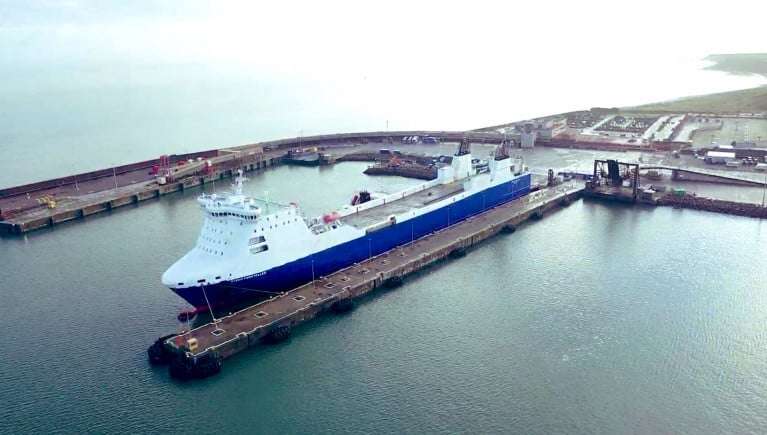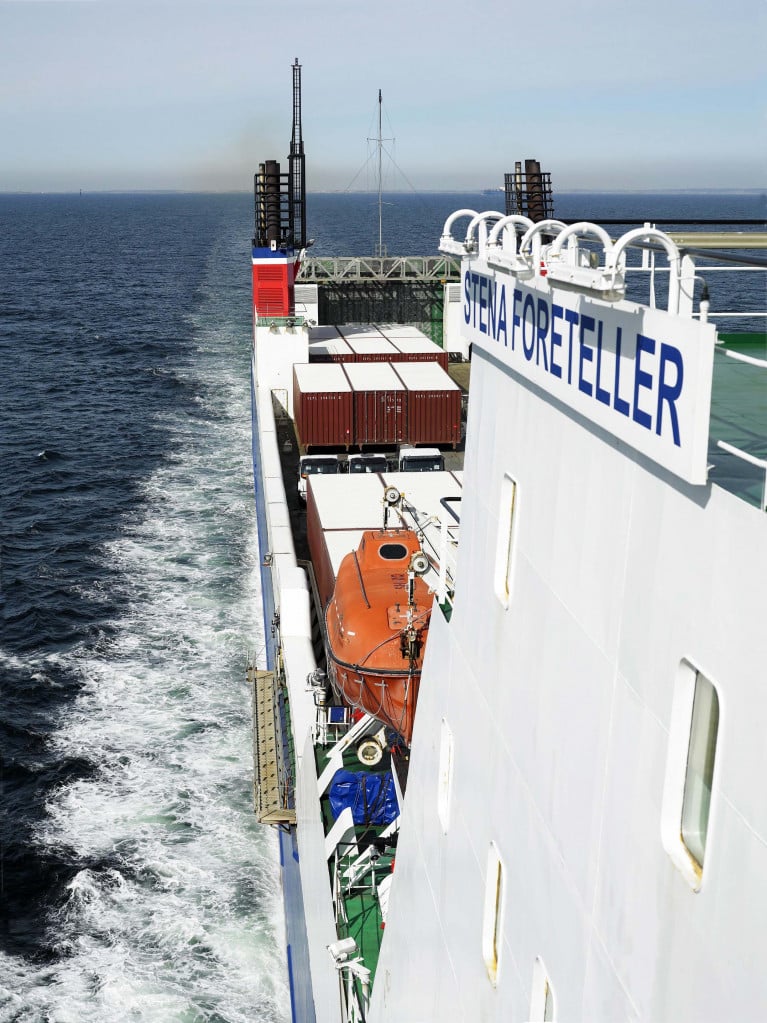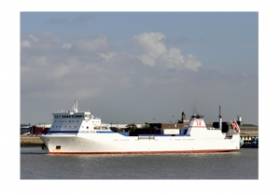Displaying items by tag: Added Capacity
Two Stena ferries will sail on Tuesday to alleviate the pressure on Irish transport companies and add capacity to direct routes to mainland Europe.
Shipping operator Stena Line is adding a second ferry on its direct route between Ireland and France from Tuesday to allow hauliers avoid Britain and Covid-related travel restrictions.
The company said it would be bringing forward plans to double the capacity and frequency of its direct sailings by two weeks from an original planned January 4th start date to cope with demand for post-Brexit freight traffic.
For more The Irish Times reports.
As Afloat previously reported DFDS on 2nd January is to launch a new freight-only route of Rosslare- Dunkirk, northern France served by three ships. They are DFDS Optima Seaways and a pair of chartered ferries, Visby from Baltic Sea operations and Kerry that previously served Brittany Ferries.
The French operator already provides sailings to Bilbao in northern Spain from where ropax Connemara (replaced Kerry last month) was tracked by Afloat.ie to arrive in the Wexford ferryport this afternoon.
In efforts to alleviate the UK land-bridge, Brittany Ferries on 22 March is to open a new Rosslare-Cherbourg service in direct competition with Stena Line.
Irish Exporters Association Welcome Additional Rosslare-Cherbourg Route Capacity in 2021
The Irish Exporters Association (IEA) has welcomed the announcement that Rosslare Europort will from January 2021 accommodate an additional sailing to Cherbourg, operated by Stena Line.
The additional 'freight-only' ferry, that will commence sailing from 4th January 2021, is a welcomed development, with which Irish exporters will factor into their Brexit proofing plans.
IEA Chief Executive, Simon McKeever added: “Alternatives to the landbridge are a key consideration for exporters and importers. I am urging IEA members to analyse their supply chain operations and look for ways to limit the shock of Brexit, which is looming large at the moment.
The announcement by Rosslare Europort reaffirms the port’s commitment to Irish exporters and importers alike. Ensuring the swift, timely and direct transit of goods to and from the continent is a paramount consideration and announcements such as this gives traders more options to bring their goods to the single market.”
Added Freight Capacity on Stena Route to Europe via UK Landbridge
#FreightCapacity - Irish freight heading to and from mainland Europe via the UK landbridge will have additional freight capacity as Stena Line respond to demand on a North Sea route to the Netherlands.
The operator on the Killingholme-Rotterdam (Europoort and Hoek van Holland) route are to introduce a second ship from the Killingholme to Europoort. RoRo vessel Caroline Russ is to be enter service to operate three times weekly from Killingholme on the UK east coast to Europoort, with the first departure from the Dutch port on October 31.
The ship will join current RoRo ship, Stena Scotia (a former Irish Sea freightferry) on the route. The frequency will hereby increase to six departures per week in each direction. The Stena Scotia was introduced on the route September 2014 as a complement to the two freight ships, the Stena Transit and Stena Transporter on the Killingholme-Hoek van Holland route.
Annika Hult, Route Manager at Stena Line North Sea says: “We have seen a strong growth in the transport market to the UK over the past several years. We introduced our freight ship the Stena Scotia in 2014 in order to accommodate growing volumes of traffic. I am very pleased to announce that we will now take the next step in the strategic development of our Killingholme-Rotterdam (Europoort) route.”
“We expect trade to remain strong and want to be in the best place to service our customers and meet additional demands. Europoort continues to develop as an important freight hub for Stena Line and we are confident our customers will react positively to our expanded service”.
Facts: Caroline Russ
Type of ship: RoRo
Trailers: 102
Passengers: 12
Year of construction: 1999
Length: 153 m
Width: 20.6 m
Max speed: 20 kn































































